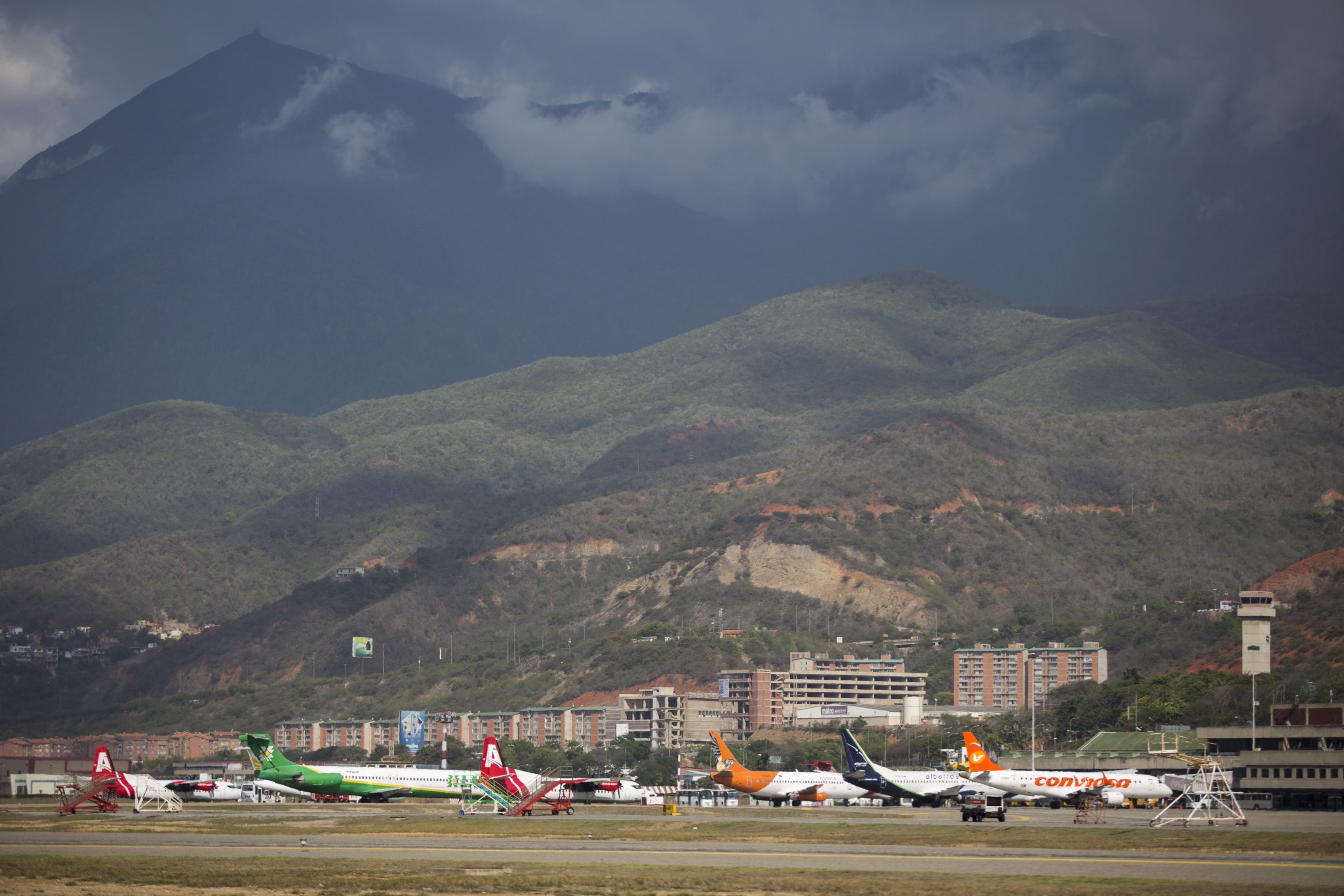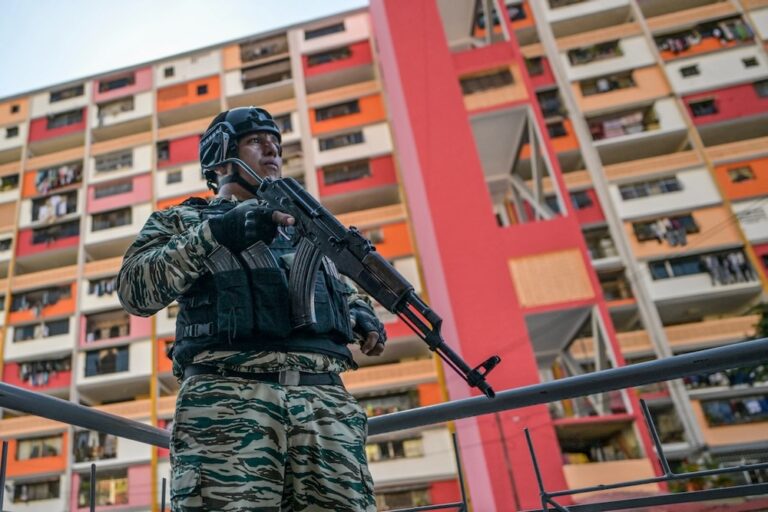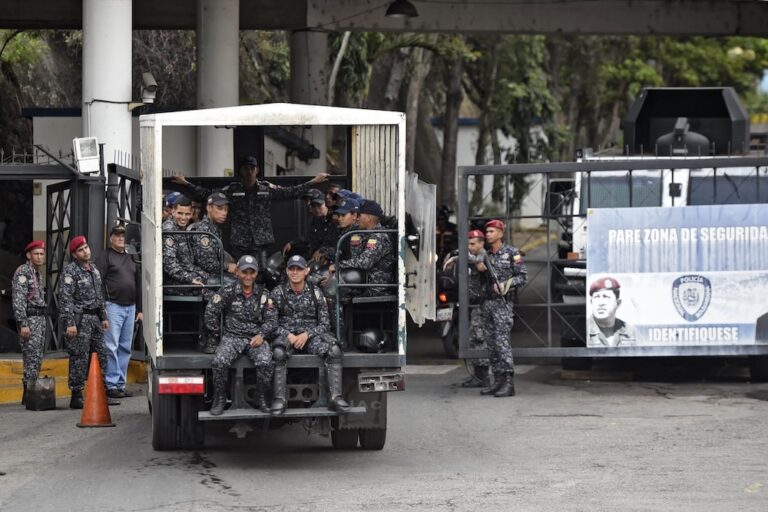On 2 and 3 December 2015, international correspondents who arrived in Venezuela to cover the upcoming parliamentary elections reported that their audiovisual equipment was confiscated by the authorities at the Simón Bolívar International Airport near Caracas.
This is an abridged translation of an article originally published on ipysvenezuela.org on 3 December 2015.
On 2 and 3 December 2015, international correspondents who arrived in Venezuela to cover the upcoming parliamentary elections reported that their audiovisual equipment was confiscated by the authorities at the Simón Bolívar International Airport in Maiquetía, Vargas state. The authorities demanded a specific equipment declaration form, a document that was not requested by the Venezuelan embassies in the various countries where the journalists had been given their accreditation.
Marco Antonio Coronel, a journalist who works for the “Punto de Partida” programme, broadcast on the Mexican channel Televisa, told IPYS Venezuela that his equipment was confiscated at the airport after authorities told him about the requirement for the equipment declaration form.
“Twenty days ago the production team for the programme began the accreditation process so that we could travel to cover the elections. We complied with the processing of the documents that the Venezuelan consulate requested for the credentials. But they never told us about this new requirement,” said Coronel.
Guillermo Panizza, a journalist with Televisora Federal (Telefe), from Argentina, tweeted about authorities also taking his equipment because he did not have the right forms to bring it into the country. In a radio interview he said that he and his colleagues were able to enter the country without their equipment.
Panizza said that the airport authorities wanted an inventory of the equipment they were bringing into the country and to know what they were going to do there. He said that they had gone to the Argentinian embassy in Venezuela to try to sort out the issue.
Accreditation procedures for international journalists wanting to go to Venezuela to cover the elections would have taken place in embassies all over the world for the past few months. The process is overseen by the Ministry for Communications and Information (MINCI in Spanish).
On 3 December, Panizza tweeted that officials from the Argentinian embassy had been working to help his team get access to their equipment.
Patricia Janiot, a Colombian journalist who works for CNN en Español, also reported on 2 December that eight boxes of her technical equipment had been confiscated. She echoed other journalists’ statements that they had not been notified about special requirements for bringing their equipment into the country. “Now other senior Venezuelan officials are aware of the situation and seem willing to work together to overcome the misunderstanding,” she tweeted.
According to reports received by IPYS Venezuela, journalists from the international news agency Reuters also had similar experiences at the airport.
Background
In September 2015, a Colombian news team was detained at customs at the Maiquetía international airport. Silvia Corzo, who works for RCN Noticias in Colombia, a programme produced by Radio Cadena National de Televisión de Colombia, told IPYS Venezuela that customs officials at the airport had told her cameraman that he could not enter the country with his gear, which included a video camera, tripod and lighting kit.
Corzo stated that a customs official said that to bring the equipment into Venezuela they would have to pay a fee equal to 1% of the value of the equipment. “At the time we had about 15,000 dollars worth of equipment and we could not pay the fee. They were essentially asking us to pay to import the equipment,” she said.
Restrictions on coverage by international outlets
On 30 November, correspondents from different international media outlets told IPYS Venezula that MINCI was requiring them to sign a letter of intent as a requirement to be able to cover the 6 December parliamentary elections. The international reporters said that they could have their credentials revoked if the State decided they had violated the principles of “the democratic process”.
IPYS Venezuela is concerned that this type of decision affects the practice of journalism and puts conditions on the election coverage that should otherwise be free, plural and independent.
The Press Workers Union (SNTP in Spanish) reported that they had shared, with international observers, the details of cases of international journalists trying to enter the country. The SNTP sent a letter to the election obeservers from the Union of South American Nations (UNASUR), who have committed to ensuring access to information and promoting equitable conditions in the electoral process.
IPYS Venezuela calls on the Venezuelan government to respect the work of international journalists and media workers and to guarantee their safety during the 6 December elections, in accordance with free expression standards outlined in the Venezuelan constitution.
Principle 5 of the Organization of American States’ Declaration of Principles on Freedom of Expression establishes that prior censorship, direct or indirect interference in or pressure exerted upon any expression, opinion or information transmitted through the media must be prohibited by law.



